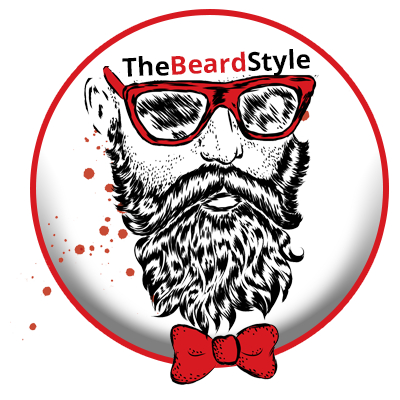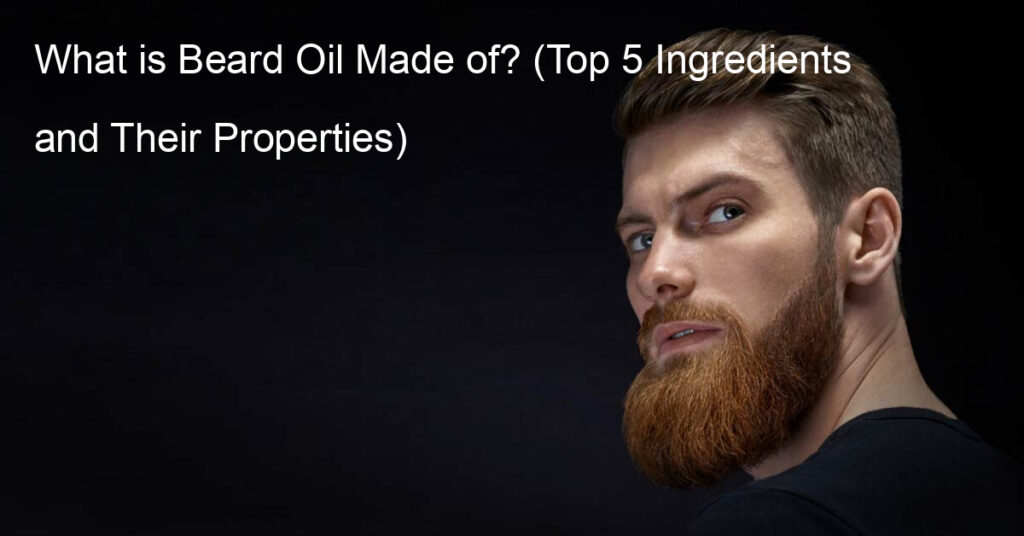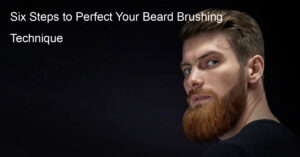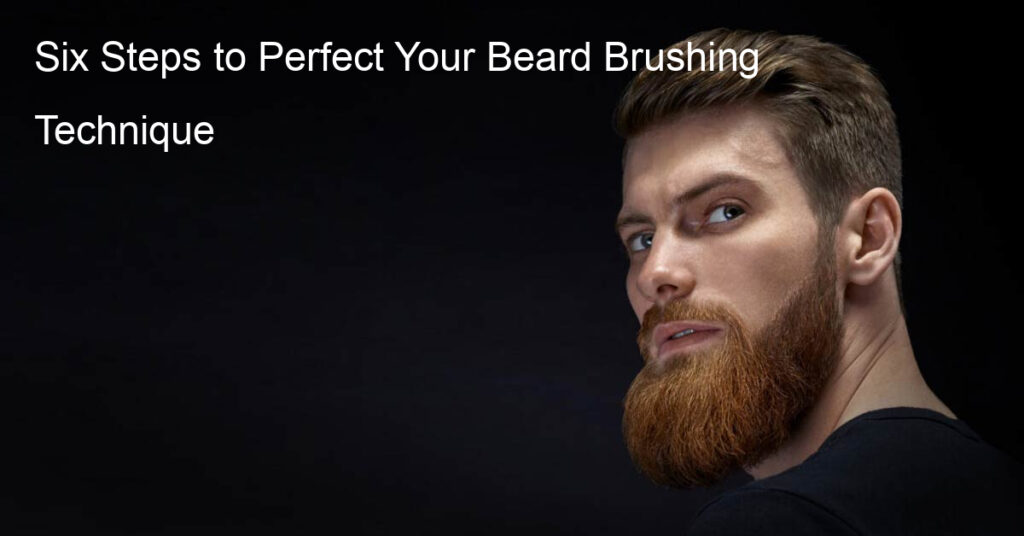If you have beards, you may decide to take utmost care of them and the skin around your facial hair.
Beard oil always comes in handy for you because it keeps the hair healthy, strong, and moisturized.
So what ingredients go into the making of beard oil? Below I will highlight the main ones that enable the making of beard oil.
What is Beard Oil Made of? 5 Main Ingredients
| Ingredient | Description |
|---|---|
| Carrier oils | Base oils that dilute the essential oils and provide hydration and nourishment to the skin and beard. Common carrier oils include jojoba oil, argan oil, sweet almond oil, and coconut oil. |
| Essential oils | Concentrated oils extracted from plants that provide fragrance and additional therapeutic benefits to the beard and skin. Common essential oils used in beard oil include cedarwood, sandalwood, peppermint, tea tree, and lavender. |
| Vitamin E | An antioxidant that promotes skin health and helps to reduce inflammation and redness. |
| Natural extracts | Extracts from natural sources, such as aloe vera or chamomile, that provide additional benefits to the skin and beard, such as hydration and soothing properties. |
1. Coconut Oil
Coconut oil is derived from the milk, wick, and meat of the coconut palm. The oil can is extracted by either dry or wet processing.
Coconut oil enhances healthy and soft beards while keeping the skin hydrated and moisturized underneath your beard.
2. Hemp seed Oil
Hemp seed oil is extracted from hemp seeds. The oil is majorly used in producing body and skin care products like beard oils.
The oil is rich with lipids that strengthen your beard strands and thicken them.
Pro tip: Hemp seed oil is extracted from cannabis sativa that does not contain a tetrahydrocannabinol component. However, you should not confuse hemp seed oil with hash oil, extracted from cannabis flowers but contains significant amounts of tetrahydrocannabinol.
3. Jojoba Oil
Jojoba oil is extracted from the Simmondsia Chinensis plant. The oil is unique to most oils because of its shelf life, longevity, and resistance to extremely high temperatures.
The oil is known for its natural antifungal and antibacterial properties that prevent beard issues like dandruff and hair breakages.
4. Grape Seed Oil
Grape oil is extracted from grape seeds. It is used in the production of beard oil.
The oil contains chemical properties like oleic, stearic, linoleic, and palmitoleic acid that aids in; maintaining the glam of your beard, solving the issue of itchiness of the skin underneath your beard, and enhancing proper blood flow for the skin underneath your beard.
5. Argan Oil
Argan oil is extracted from the argan tree found in Morocco, Africa.
The oil is used in hair and beard care preparations. It has an abundance of vitamin E that boosts hair cell growth and the growth of healthy beards.

Frequently Asked Questions
1. Does Beard Oil Enhance Hair Growth?
There’s no scientific proof that beard oil enhances hair growth. But there’s anecdotal evidence that some of beard oil’s essential oils can promote beard growth. The essential oils include bay leaf, ylang-ylang, and others containing antioxidants.
2. Does Beard Oil have Side Effects?
There are several varieties and brands of beard oils. It is prudent to read the ingredients first before purchase to avoid the ones you may be allergic to.
Any beard oil that contains tea trees is good if your skin is too sensitive or if you have acne because of its antiseptic qualities.
Too much cinnamon on your face may cause irritation and itch to your face, especially if your skin is sensitive.
So it is wise to avoid oils that have ingredients not friendly to acne-prone or sensitive skin and to test various oil beard products to identify your best fit.
3. Where Can I Purchase Beard Oil?
Several departmental stores do sell grooming products for men. Depending on your budget, you will find various beard oils in such stores.
You may also opt to purchase beard oils online from the comfort of your house.
4. Are Long Beards the Only Ones that Need Beard Oil?
All beards need to be moisturized and taken care of, whether long or short. It is easier to apply on shorter beards, but you will need to spread the oil evenly using a comb with the long beards.
5. How Many Times a Day Should You Apply Beard Oil?
1 to 3 times a day is a good interval for applying beard oil. But this depends on your environment, your beard’s condition, and your skin type.
If your skin is prone to becoming dry quickly, you may opt to apply more times.
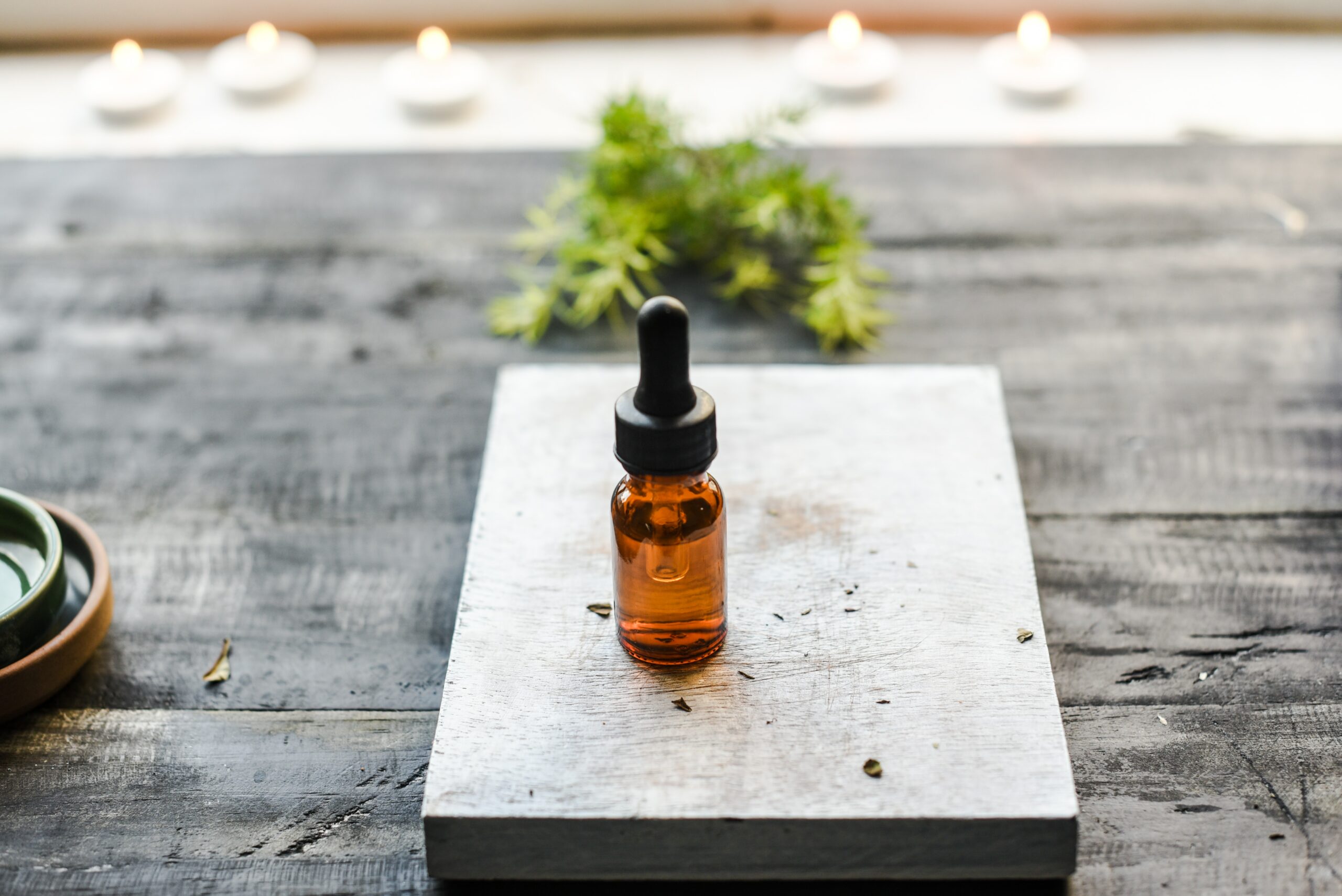
What are the different types of oils used in Beard Oil?
Beard oils are essential for keeping your facial hair looking and feeling its best. Not only do they help keep your beard soft, but they also provide it with the nourishment and hydration that it needs to stay healthy. The key to finding a good quality beard oil is in understanding the different types of oils used in their formulations.
There are several natural oils commonly used in beard oil, each offering unique benefits to the user. Argan oil is rich in vitamin E and antioxidants, making it an excellent choice for conditioning and hydrating skin beneath the beard while providing some shine to facial hair as well.
Jojoba oil helps balance sebum production – the natural oily substance produced by our bodies – which can be beneficial if you have an excessively dry or oily scalp or beard area. Sweet almond oil provides additional moisturizing properties as well as being packed full of vitamins A and E, both known for helping promote healthier skin cells underneath any type of facial hair growth.
Finally, avocado oil has been found to help reduce inflammation due to its high omega-3 fatty acid content while providing plenty of moisture at the same time.
Is it possible to make your own beard oil at home?
Beard oil is a popular product used to keep facial hair looking and feeling its best. Not only does it help to condition the beard, but it also provides nourishment and hydration that is essential for healthy growth.
While there are many different varieties of beard oils available on the market, did you know that it’s possible to make your own at home? Making your own beard oil can be an enjoyable experience as well as a cost-effective one.
All you need is some basic ingredients such as carrier oils (such as jojoba or argan oil) and essential oils (which provide fragrance). You can customize your blend by adding in more of certain types of carrier oils or playing around with different combinations of essential oils – this allows you to tailor the scent according to your preference.
Is beard oil safe for sensitive skin?
Beard oil is a popular product used to keep facial hair looking and feeling its best. Not only does it help to condition the beard, but it also provides nourishment and hydration that is essential for healthy growth.
But those with sensitive skin may be wondering if beard oil is safe for them to use. The good news is that most brands of beard oil are designed specifically to be gentle on sensitive skin.
They usually contain natural ingredients such as jojoba, argan, or sweet almond oils which are known for their hydrating properties without being overly abrasive or irritating. Additionally, many formulas include essential oils like lavender or chamomile which have calming effects on the skin – perfect for those who suffer from redness or irritation when using products containing harsh chemicals.
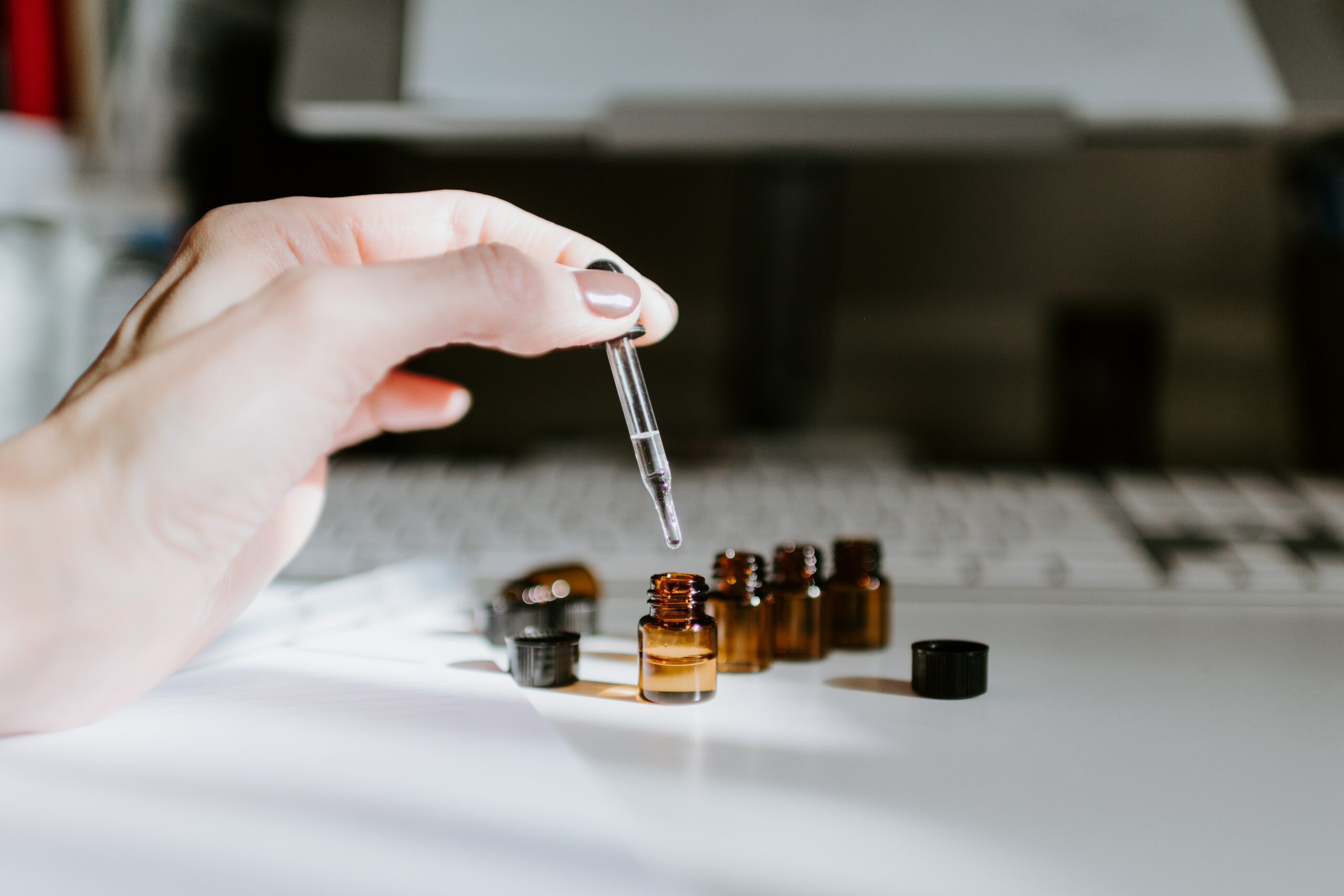
Does the quality of the ingredients affect the effectiveness of beard oil?
The quality of the ingredients in beard oil can have a significant impact on its effectiveness. High-quality carrier oils, such as jojoba, argan, and sweet almond oil, contain nourishing fatty acids that help to hydrate and condition the skin beneath facial hair while providing some shine to it as well.
These natural oils are also excellent at helping to balance sebum production, which is essential for a healthy beard. Furthermore, essential oils can add additional benefits depending on their individual properties – some may provide antibacterial protection while others may help reduce inflammation or itchiness.
On the other hand, using low-quality or diluted formulations of beard oil can actually do more harm than good. Not only can these products lack in their hydrating and conditioning capabilities, but they may also contain harsh chemicals which could irritate the skin even further.
Additionally, dilution with cheap fillers often means that less of the beneficial active ingredients are present – meaning you won’t get anywhere near the same level of nourishment you would from a higher-quality product.
Therefore, when selecting a beard oil it is important to make sure that you choose one made with high-quality natural ingredients so that you can achieve maximum results from its use.
Should you use a scented or unscented formula for beard oil?
When it comes to choosing a beard oil, one important decision to make is whether or not you should opt for a scented or unscented formula. Those who prefer the added fragrance of some essential oils may opt for a scented version, as this can provide an extra layer of enjoyment when applying the product.
Additionally, certain essential oils boast beneficial properties such as antibacterial protection or reducing inflammation – so if you’re looking for these qualities in your beard oil then opting for a scented variety may be the way to go.
However, those with sensitive skin may want to consider using an unscented formula instead. Many brands offer versions of their products without any added fragrances which can help reduce any potential irritation that could occur due to the presence of essential oils.
Furthermore, not having a scent can also be beneficial if you don’t want your facial hair to smell like anything but its natural aroma – perfect for those who want their look and feel to be more subtle and understated.
Can beard oil prevent ingrown hairs?
Beard oil is a popular product used to keep facial hair looking and feeling its best. Not only does it help to condition the beard, but it also provides nourishment and hydration that is essential for healthy growth.
But can using beard oil actually prevent ingrown hairs? The answer is yes – certain ingredients found in some high-quality formulas of beard oil may be able to help reduce the occurrence of ingrown hairs.
Jojoba and argan oils are known for their anti-inflammatory properties which can help soothe any irritation caused by facial hair rubbing against skin, while sweet almond oil has been found to have exfoliating effects on skin cells due to its vitamin A content.
Additionally, many brands include natural antibacterial agents like tea tree or lavender oils which can provide protection from bacteria that could cause infection or inflammation around the follicles – all helping you maintain a healthy beard with fewer problems!
So if you’re prone to ingrown hairs then investing in a good quality beard oil might just be what you need.
Key Takeaway
The oils highlighted above that are contained in beard oil have antifungal, anti-inflammatory, and antibacterial properties. That means that some form of healing properties are attached. So, the next time you’re buying the best beard oil, don’t forget to check the ingredients.
